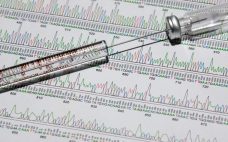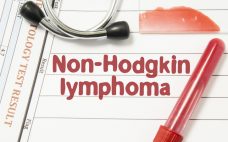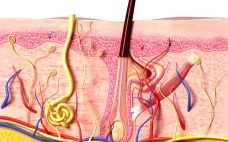Moderna has successfully transferred personalized cancer vaccine capabilities to its recently opened production facility in Norwood, Massachusetts. In July 2018, Moderna Therapeutics opened a 200,000 square foot clinical development manufacturing plant in Norwood, Massachusetts to support its pipeline of messenger RNA (mRNA) therapies. āSince the site opening, we have successfully manufactured clinical grade mRNA and then moved to formulation and went to filling and finally labeling of our vials,ā StĆ©phane Bancel, Modernaās CEO told stakeholders during his firmā recent Q4…

Therapeutic Class
Biosimilarā¦ but different: FDA tweaking nonproprietary name guidance
The US FDA has proposed changes to its nonproprietary naming guidance to remove the proposed controversial four-letter suffix from older biologics. In 2017, the US Food and Drug Administration (FDA) published guidance to include a random four-letter suffix to the international nonproprietary names (INN) of all biological products. The ruling essentially distinguished a biosimilar from its reference product, so Amgenās reference product Neupogen, for example, is known as āfilgrastim-jcwp,ā while Sandozās biosimilar version Zarxio ā the first biosimilar approved and…
Precision Bio $100m IPO to support allo CAR-T build-out
Precision Bio hopes the initial public offering (IPO) will advance its off-the-shelf CAR-T candidates, based on its ARCUS genome editing platform. North Carolina-based Precision Bio has applied for a listing on the Nasdaq exchange. According to its Form S-1 filed with the SEC, the firm will use the anticipated $100 million (ā¬88 million) raised in the IPO to advance and expand its clinical and preclinical development programs. This includes plans to complete a Phase I/IIa clinical trial for its CD19…
Xenetic buying Scripps-developed XCART technology
The currently marketed CAR-T therapies cannot discriminate between healthy and malignant B-cells says Xenetic Biosciences, which is buying a technology to enhance the safety and efficacy of such products. The XCART technology platform, developed by the Scripps Research Institute in collaboration with the Shemyakin-Ovchinnikov Institute of Bioorganic Chemistry, will be used by Xenetic Biosciences to develop cell-based therapeutics for the treatment of B-cell Non-Hodgkin lymphomas. The two chimeric antigen receptor (CAR) T-cell products on the market ā Kymriah (tisagenlecleucel) and…
FDA commissioner resignation āa great day for rogue stem cell clinicsā
Scott Gottlieb will step down from his position as commissioner of the US FDA next month. He issued more cell and gene therapy guidance in his two-year tenure than had appeared in the previous ten. In May 2017, the US Senate confirmed Dr Scott Gottlieb as commissioner of the US Food and Drug Administration (FDA). This week, nearly two years on, and Gottlieb announced he is to step down from the role in the next month. Among Gottliebās achievements are…
Autolus: āFully-enclosed and machine-madeā CAR-Ts to lower COGS
Having begun to build out its CAR-T network, Autolus says its fully contained, semi-automated manufacturing process will increase efficiencies and reduce costs. Last June, Autolus Therapeutics raised $150 million (ā¬132 million) in its initial public offering (IPO) with the intention of using some of the funds to support the manufacturing of its personalized Chimeric Antigen Receptor (CAR) T-cell therapy pipeline. In January, the UK-headquartered firm began building out a commercial manufacturing facility in Enfield, London, and signed a long-term full…
Celltrion injects $51m to get under the skin of infliximab competitors
Celltrion Pharm has pledged KRW 58.2 billion won ($51 million) to establish a production site for Remsima SC, a subcutaneous version of its Remicade biosimilar. Korean drugmaker Celltrion has achieved regulatory success for its biosimilar of J&Jās Remicade (infliximab) across several key markets and is now looking to receive approval and launch a subcutaneous version of the immunosuppressive monoclonal antibody. To prepare for launch, the firm has committed KRW 58.2 billion won ($51 million) to its site in Cheongju, South…
Adaptimmune on the merits of inhouse T-cell production
Adaptimmune says the only way an autologous T-Cell firm can control the evolution of production technologies is to have the process under its own roof. Adaptimmune Therapeutics began working with contract development and manufacturing organization (CDMO) PCT ā now known as Hitachi Chemical Advanced Therapeutics Solutions (HCATS) ā in 2013 and entered into a five-year strategic partnership in 2016 for the manufacture of its autologous SPEAR (Specific Peptide Enhanced Affinity Receptor) T-cell cancer immunotherapies. But the firm has also been…
NASA teams with Pluristem for cell therapy space program
NASA will conduct studies assessing Pluristemās placental-derived cell therapies in astronauts who are planning space travel. NASAās Ames Research Center has been awarded a 2019 NASA Ames Research Innovation Award (ARIA) to look at how Pluristem Therapeuticsā cell therapies can tackle serious medical conditions during travels in space. āDuring space missions, astronauts are exposed to a challenging environment, which could lead to serious medical conditions, including muscle atrophy,ā Efrat Kaduri, a spokesperson from Pluristem, told BioProcess Insider. āGiven the promising…
Spark brings cell culture suspension to hemophilia gene therapy
Spark therapeutics has strengthened its manufacturing capabilities to achieve scale of 2×200-liter suspension upstream and 400-liter downstream to support its hemophilia A gene therapy candidate. Spark Therapeutics – set to be acquired by Roche for $4.3 billion – made history in December 2017 when it won approval for the first the first gene therapy for a genetic disease in the US in the form of Luxturna (voretigene neparvovec). Luxturna is approved to treat patients with a rare form of inherited…










